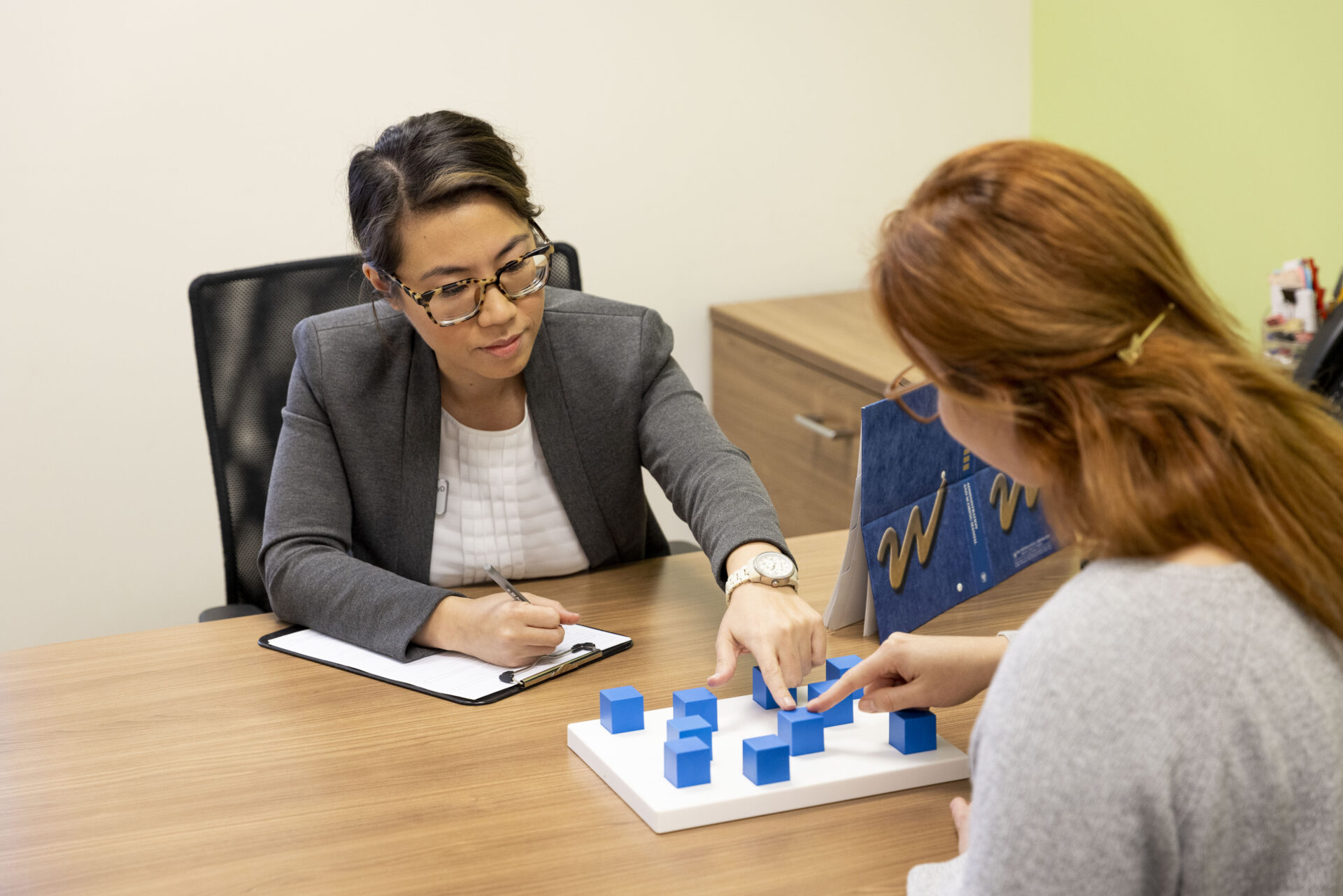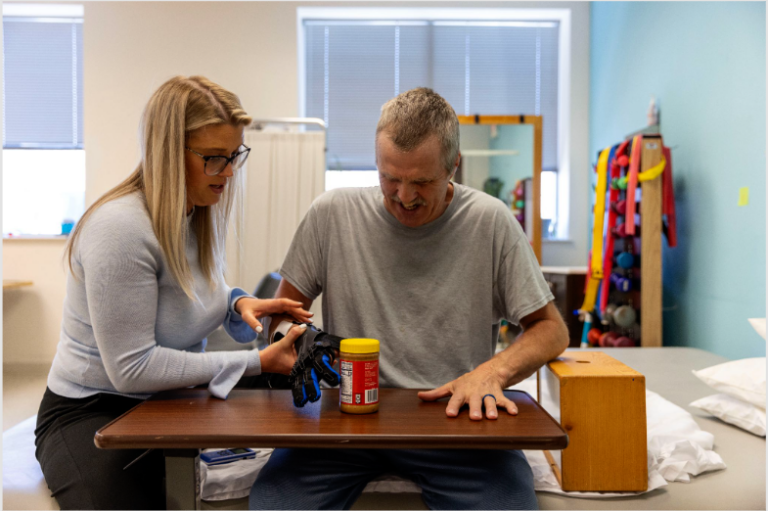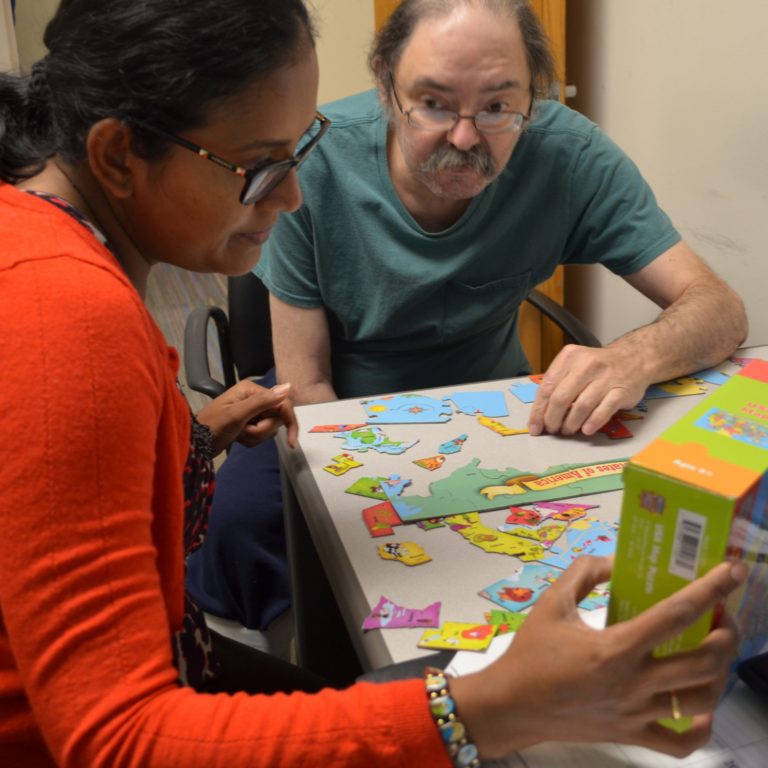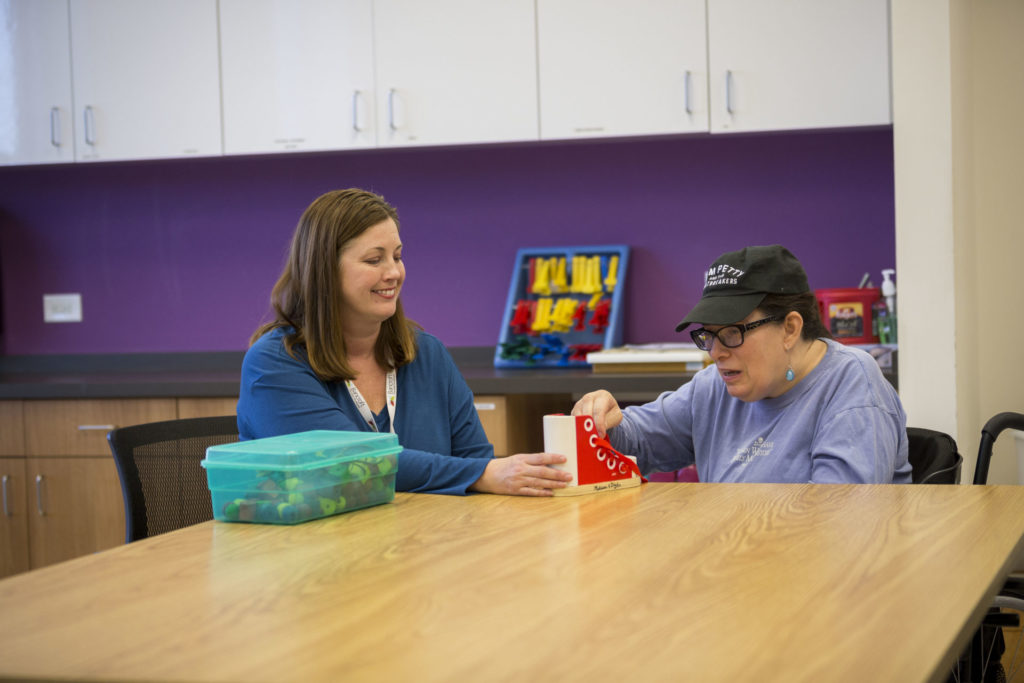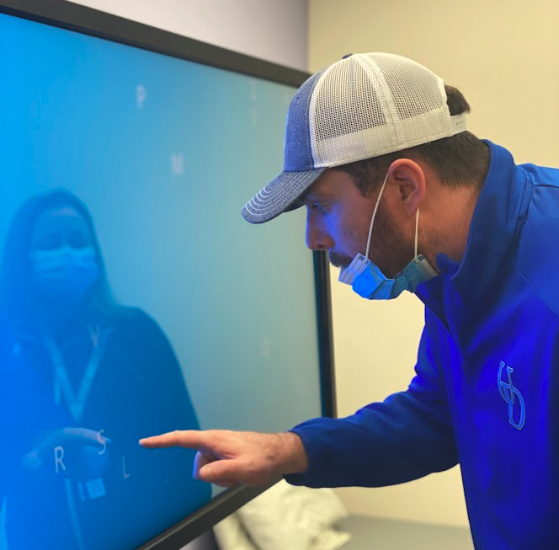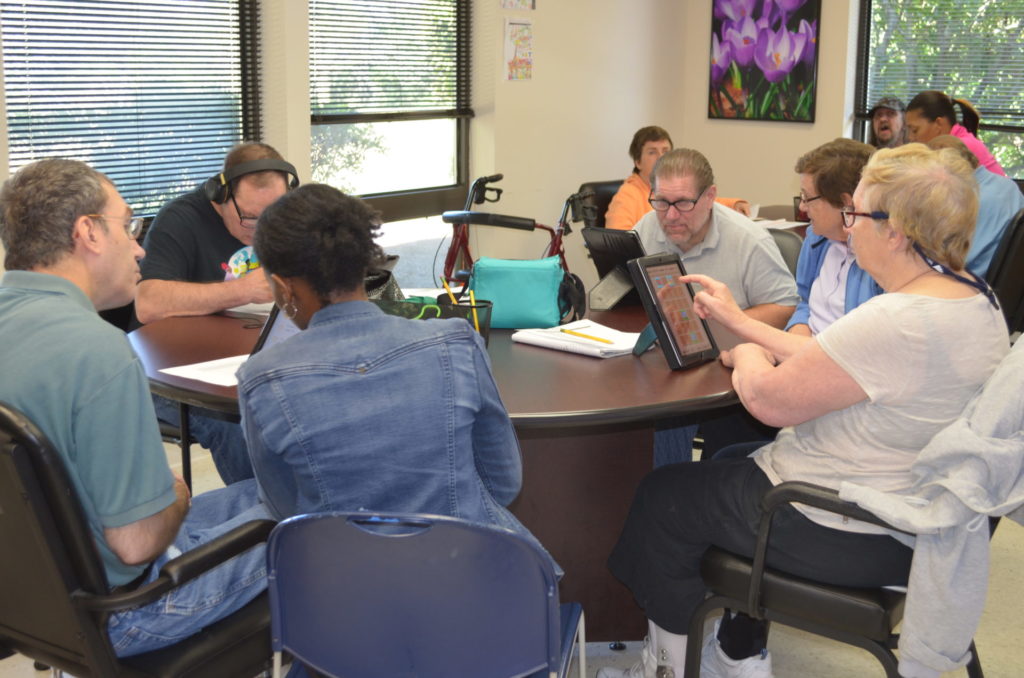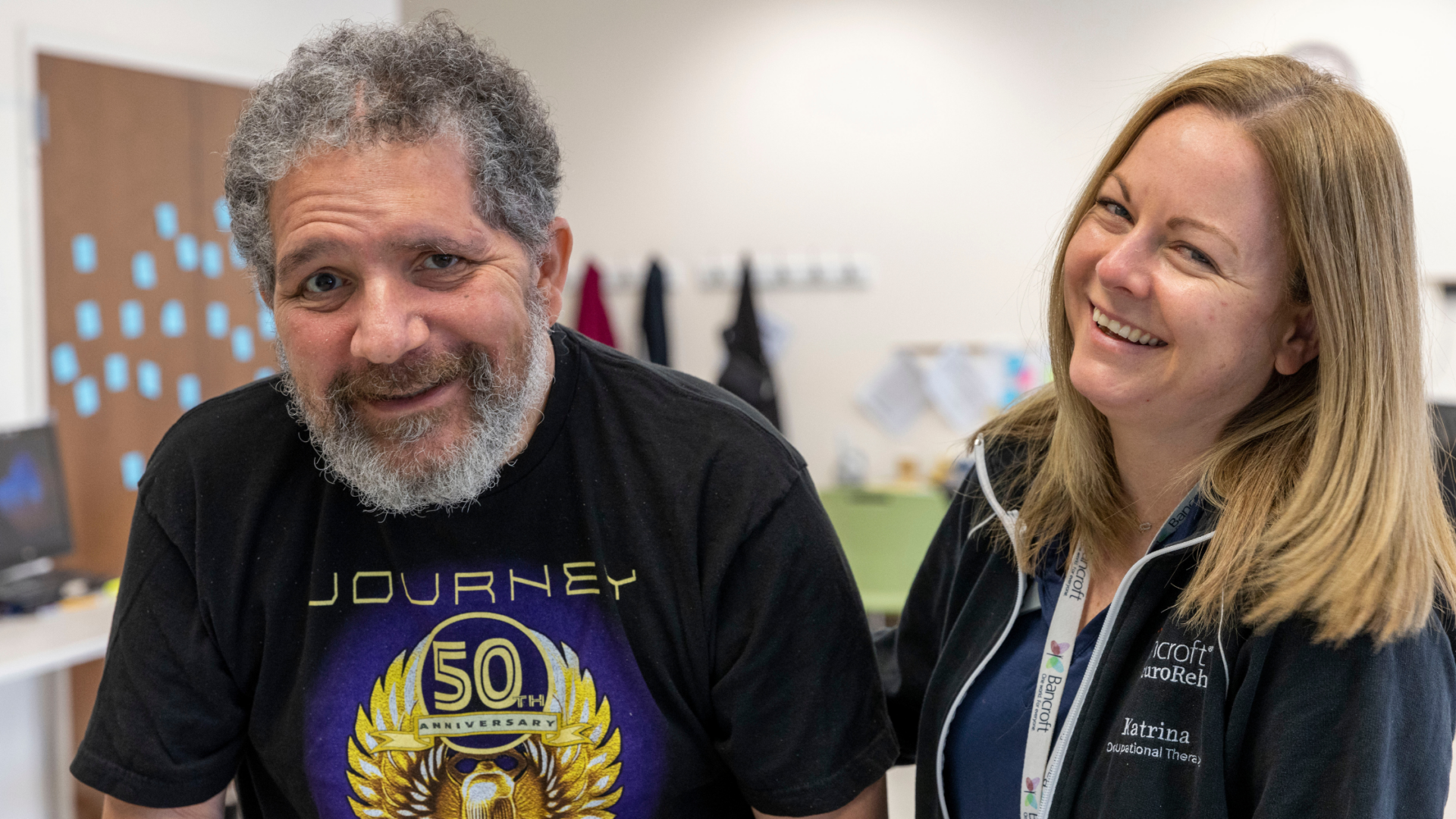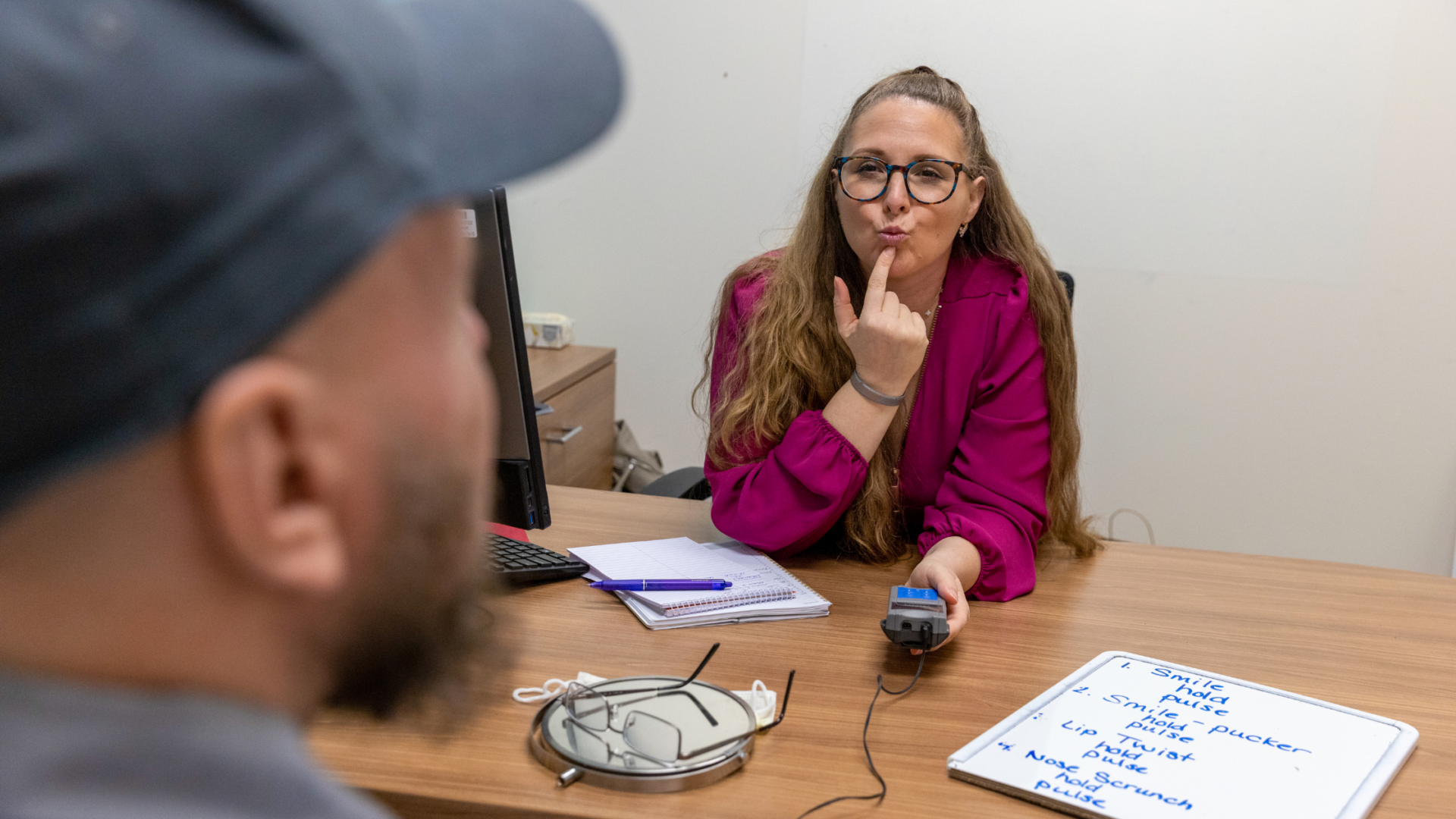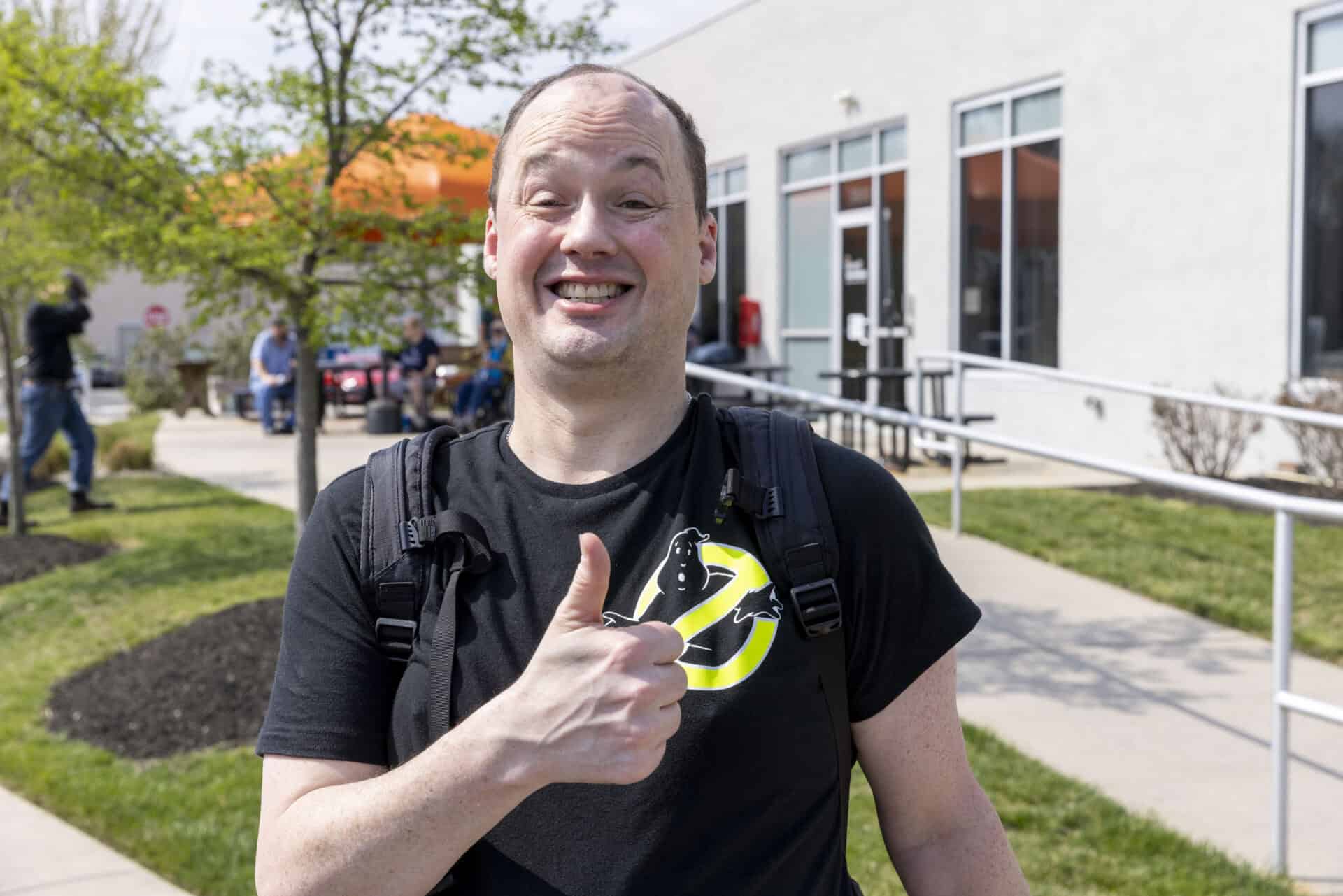Just like your body, the brain needs exercise to stay in shape. As we kick off Brain Injury Awareness Month, a neuropsychologist from Bancroft NeuroRehab shares practical tips to stay mentally fit at any age.
By Sarah West, Ph.D.
Neuropsychologist, Bancroft NeuroRehab
We’ve all been there. Forgetting a name or a word that was just on the tip of our tongue. Losing our keys – or forgetting what we were just going to do.
Life gets busy, and most of us have neverending to-do lists. It’s understandable that we might forget a thing or two.
As we get older, though, concern about the way our brain is functioning can grow… and we find ourselves trying everything we can to stay sharp.
Research has shown that there are two key pieces to boosting brain health as you age: living a healthy lifestyle — and making your brain work.
As a neuropsychologist at Bancroft NeuroRehab, much of my time is focused on helping patients rebound after brain injuries and neurological conditions. But many of the tips I offer my patients can help you too:
  |
1. Use it, or lose it!
Your brain needs to be stimulated to function properly, and that’s even more true once you hit retirement age, when you may not be engaging your brain the way you used to. Think of it as exercise for your brain! There’s no research to suggest that one activity is better than another, but the more challenging, the better. Read more, or join a book club, which has social benefits, as well. Grab a crossword or sudoku puzzle. Want to up the ante? Learn a new language, take a cooking or dance class, learn a new skill – or audit a course at a local college.
2. Exercise. Cardio is especially beneficial because it is good for the blood vessels that feed your brain. Aim for 30 minutes of moderate exercise, 5 days a week. A brisk walk – one where your heart rate is elevated, but you can still hold a conversation – is a great place to start. If your mobility is limited, try a modified exercise that works your upper body, like Chair Yoga. YouTube is a great resource for free workout videos if you can’t make it to the gym! Find a routine, and stick to it. (Always consult a physician before beginning or changing work out routines.)
3. Stay social. Join a social club, a book club, or a group class at your local gym. Schedule lunch with a friend, or go shopping. Staying social, reconnecting with old friends and even making new ones will help engage your brain and can boost your mood. Local towns can be a valuable resource for senior clubs and free classes and activities, and some may offer transportation. Volunteering is another great way to stay involved – even better if you can find an opportunity to put your professional skills to use.
4. Monitor your risk factors and eliminate bad habits. High blood pressure, high cholesterol and diabetes damage blood vessels in your heart and brain, which can increase your risk of stroke or heart attack, and cause problems with thinking and memory. High-risk habits like smoking can increase these risks, too, in addition to causing a myriad of other health problems. Excessive drinking can raise your risk of dementia and other cognitive problems. Consult your doctor if you need help managing any of these risk factors.
  |
5. Check your diet.
The MIND diet, Mediterranean diet, the DASH diet… there are countless diets that claim to benefit the brain. Whatever you call it, you should target a diet rich in lean meats, fresh fish, whole grains, fruits, vegetables and healthy oils. Your doctor or a registered dietician can help manage any specific dietary needs you might have. Meal delivery services can be a great tool in helping to meal plan, manage portion size and control the types of cuisine you prepare. Bonus: You might learn to cook something new!
6. Protect your mental health. As we get older, it’s inevitable that we will lose some of the support systems we’ve relied on through life – whether it’s from losing friends or family members, or retiring from a job that kept us busy and engaged for so many years. That sense of isolation can lead to anxiety or depression. People who have changes in the brain are even more likely to develop those feelings, and conversely, symptoms of depression are more likely to impact our thinking as we age. Socialization and exercise can help… but talk to your doctor if you feel like you need more support. Mindfulness meditation can help clear your mind – but interventions like medication, psychotherapy, and support groups may also be beneficial.



